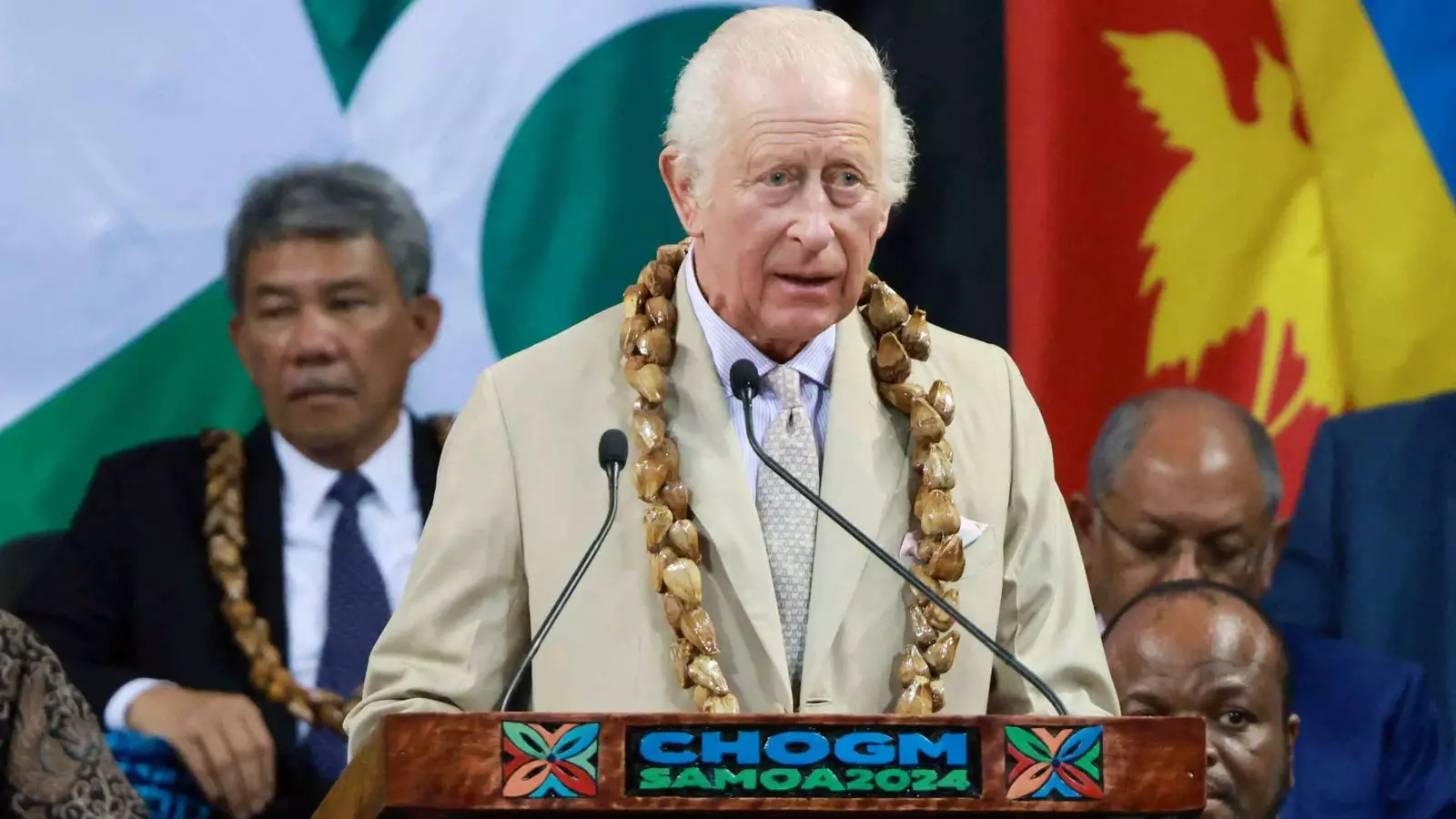The recent Commonwealth leaders’ gathering in Samoa marked a pivotal moment for the King, as it was his inaugural address since assuming the role of head of the Commonwealth. Although the overarching theme emphasized a shared future, the echoes of the past loomed heavily over the proceedings. This meeting unfolded against a backdrop of deep and unsettling divisions, particularly the ongoing discussions around reparations for the transatlantic slave trade. The reconciliation of historical grievances with a collective vision for the Commonwealth’s future raised profound questions about the monarchy’s role in addressing such sensitive issues.
In his carefully articulated speech, the King acknowledged the “painful aspects of our past” and emphasized the necessity of learning from history. However, his refraining from explicitly naming “slavery” or “reparations” raises concerns about the sincerity of this acknowledgment. For many nations within the Commonwealth, particularly those from the Caribbean and Africa, his statements lacked the weight of a formal apology or recognition of guilt. Prominent advocates, like Eric Phillips from Caricom, have criticized the absence of reparative measures and argued for a stronger stance, insisting that without reparations, there cannot be a meaningful partnership.
The King finds himself in a precarious position, tethered between the historical context of the royal family’s involvement in the slave trade and the present reality of his constitutional role. Buckingham Palace’s insistence that the monarchy remains above political commentary complicates the situation. This separation creates an impression of detachment at a time when active engagement and accountability are demanded by numerous Commonwealth nations. Historical ties to the slave trade have rendered the royal legacy particularly complicated, engendering skepticism about the monarchy’s commitment to addressing these issues.
Continued dissatisfaction among Caribbean and African nations suggests a broader rift threatening the unity of the Commonwealth. The tension is palpable, with influential figures questioning the monarch’s role if it continues to sidestep these pivotal discussions. Eric Phillips’s comments enlightening the discord emphasize a broader sentiment of betrayal among states that feel historically marginalized. Such division not only poses risks to the political unity of Commonwealth nations but also raises doubts about their future collaborations.
The King’s concluding sentiments — a call for pride in contemporary identity and a collective journey toward a harmonious future — might resonate positively. However, whether these aspirations materialize into actions that address historical injustices remains uncertain. As the Commonwealth strives to reconcile its fractured history with a vision of mutual respect and cooperation, the words spoken by its head will need to translate into concrete measures. The path forward is daunting, but with honesty and commitment to historical accountability, a more inclusive future can be achieved. Therefore, while the King’s speech may have sought to inspire, it is imperative to recognize the need for tangible actions that transform rhetoric into reality.


Leave a Reply